Daily Current Affairs 20 August 2021 – Gkseries

Current Affairs is the most important area in all competitive exams. But the difficulty level is very high. That’s why; many aspirants get confused, how to select Current Affairs for Preparation of Competitive Examination? In this Post, Daily Current Affairs 20 August 2021, we have tried to cover each and every point and also included all important facts from National/ International news that are useful for upcoming competitive examinations such as UPSC, SSC, Railway, State Govt. etc.
Daily Current Affairs 20 August 2021
MoU between India and United States of America on cooperation in the field of Geology

Union Cabinet of India recently approved Memorandum of Understanding between India and United States of America on cooperation in the field of Geology.
The MoU will provide an institutional mechanism between Geological Survey of India (GSI) and the Florida International University (FIU) on cooperation in the field of Geology.
The objectives of the MoU are to understand the geologic and tectonic environment of the generation and emplacement of post-collisional magmatism in India-Asia Collision margin in particular and to construct a model of post-collisional magma genesis in continental collision zones in general and to construct the geologic and tectonics of the Eastern Himalayan Syntaxis.
The identified area of cooperation between the two Participants will be as follows:
- Development of the geological knowledge, research regarding geologic and tectonic environment of post collisions magmatism in India-Asia collisional margin, geologic history and tectonics of the Eastern Himalayan Syntaxis.
- Developing cooperative projects in the fields of regional geological, geochemical, petrological and multi-isotopic studies related to the evolution of post collisional magmatic belts (Ladakh Plutons).
CCEA approved Rs. 77.45 cr for revival of north eastern agri-marketing corp
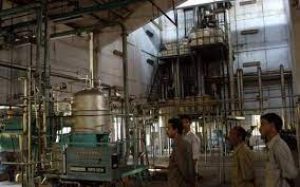
The Cabinet Committee on Economic Affairs (CCEA) approved a Rs 77.45 crore package for the revival of state-run North Eastern Regional Agricultural Marketing Corporation Limited (NERAMAC).
NERAMAC is a central public sector enterprise under the administrative control of the Ministry of Development of North Eastern Regional (MDoNER).
Revival package will help NERAMAC to implement various innovative plans namely providing better farming facilities, training to farmers in clusters, organic seeds and fertilizer etc.
MoU between Permanent Mission of India to WTO, CTIL and CTEI
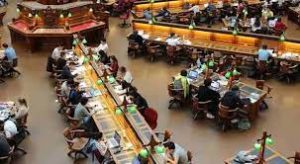
The Union Cabinet Narendra Modi has approved the signing of a Memorandum of Understanding (MoU) between Permanent Mission of India to the WTO (PMI), Centre for Trade and Investment Law (CTIL) of the Indian Institute of Foreign Trade, and Centre for Trade and Economic Integration (CTEI) within The Graduate Institute of International and Development Studies, Geneva.
The MoU with CTEI of The Graduate Institute of International and Development Studies, Geneva will provide valuable academic and research opportunities to the employees of CTIL and the Department of Commerce in the field of international trade and investment law.
The collaboration between academicians, practitioners, jurists, policy makers, and students from India, Switzerland and other countries would help create a technical and nuanced understanding of emerging and new areas of international trade and investment law and related disciplines.
The MoU will remain in force for three years.
Cabinet approved MoU between India and Bangladesh to manage disasters
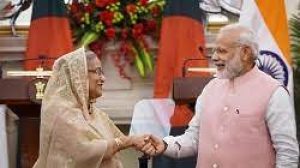
The Union Cabinet of India approved the Memorandum of Understanding (MoU) between India and Bangladesh on cooperation in the field of disaster management, resilience, and mitigation.
Salient features of the MoU:
- Extend cooperation in the field of advanced information technology, early warning systems, remote sensing & navigation services and expertise for disaster preparedness, response and mitigation and more towards real time data sharing.
- Support training of officials in the field of Disaster management.
- Conduct Joint Disaster Management Exercises bilaterally between both the countries.
- Exchange publications and materials as textbooks, guidelines in the field of Disaster Management and may conduct joint research activities in the field of Disaster management, Risk Reduction and Recovery.
Kigali Amendment to Montreal Protocol

Central government of India has approval for HFC phase-down which is expected to prevent greenhouse gas emissions. A national strategy for phase-down of hydrofluorocarbons will be developed after required consultation with all the industry stakeholders by 2023.
National strategy for phase down of Hydrofluorocarbons as per the applicable phase down schedule for India will be developed after required consultation with all the industry stakeholders by 2023.
Amendments to the existing legislation framework, the Ozone Depleting Substances (Regulation and Control) Rules to allow appropriate control of the production and consumption of Hydrofluorocarbons to ensure compliance with the Kigali Amendment will be done by mid-2024.
India will complete its phase down of HFCs in 4 steps from 2032 onwards with cumulative reduction of 10% in 2032, 20% in 2037, 30% in 2042 and 80% in 2047.
Separate civil services exam centre to be set up in Ladakh

Union minister Jitendra Singh announced that the government would be setting up a separate Civil Services Exam (CSE) centre for Ladakh. The centre will be located in Leh.
The Union Public Service Commission (UPSC) will, from this year, have an Examination Centre at Leh, which will operate for the first time for the Civil Services (Preliminary) Examination 2021, scheduled to be held on 10th of October this year.
This will address a long pending demand of the youth from the Ladakh region whose grievance was that they found it difficult to reach Examination Centres in other parts of the country because of the constraints of affordability of air fare and uncertain weather conditions.
Twin Challenges of Climate Change & Biodiversity Loss for Traditional Pineapple Agro-forestry Systems
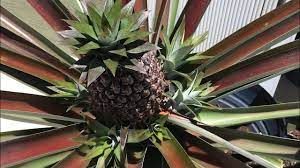
Pineapple-based agroforestry, traditionally practiced by ethnic “Hmar” tribe in southern Assam, can be a sustainable alternative to jhum cultivation for the North East India.
This traditional practice can provide twin solutions for climate change and biodiversity loss, according to a new study.
Jhum cultivation, also called swidden agriculture, the dominant agricultural practice in the region, has become unsustainable primarily due to the reduced fallow cycle resulting in depletion in soil fertility, severe soil erosion, and low agronomic productivity.
Hence, North East India and many south Asian countries are shifting to agroforestry and high-value cropping systems from traditional jhum practices over the past decades, which are considered sustainable and profitable alternatives.
Pineapple agroforestry systems (PAFS) are dominant land use in the Indian Eastern Himalayas and other parts of Asia and are mostly grown in association with multipurpose trees.
Nuclear fusion and the recent breakthrough

The Lawrence Livermore National Laboratory in California announced that an experiment carried out in its National Ignition Facility has made a breakthrough in nuclear fusion research.
In the experiment, lasers were used to heat a small target or fuel pellets. These pellets containing deuterium and tritium fused and produced more energy. The team noted that they were able to achieve a yield of more than 1.3 megajoules.
The megajoule of energy released in the experiment is indeed impressive in fusion terms, but in practice, this is equivalent to the energy required to boil a kettle.”
Nuclear fusion is defined as the combining of several small nuclei into one large nucleus with the subsequent release of huge amounts of energy.
Nuclear fusion powers our sun and harnessing this fusion energy could provide an unlimited amount of renewable energy.
Nuclear fusion energy is a good choice as the baseload energy in the future with many advantages, such as inexhaustibility of resources, inherent safety, no long-lived radioactive wastes, and almost no CO2 emissions.
World Mosquito Day 2021
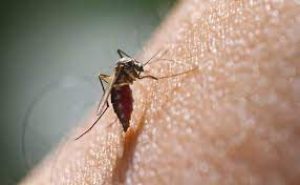
World Mosquito Day is celebrated on August 20 each year to raise awareness about the illness and disease caused by mosquitos.
Since the 1930s, the London School of Hygiene and Tropical Medicine has been organising an annual ceremony to commemorate the contributions of the British doctor, Sir Ronald.
It marks the day when Sir Ronald Ross discovered the link between female mosquito and malaria, which changed the course of medical history.
The mosquito is possibly the only predator in human history to have thrived through millennia, bringing death and destruction through a variety of vector-borne illness, particularly malaria.
According to a survey of the world’s deadliest animals, mosquitoes surprisingly topped the list.
Indian Akshay Urja Day 2021

National Akshaya Urja Diwas is celebrated on August 20 each year to mark the birth anniversary of former Prime Minister, late Rajiv Gandhi.
This effective mass awareness campaign about renewable energy was first observed on August 20, 2004, by the Ministry of New and Renewable Energy all across the country.
Late Rajiv is known as the architect of digital India as well as the ‘Father of Information Technology and Telecom Revolution of India.’
His one of the revolutionary steps was establishing Centre for Development of Telematics (C-DOT) in August 1984 to meet the needs of the Indian telecommunication network.
The C-DOT revolutionised the communication network in urban as well as rural areas. The revolution the PCO (public call office) was introduced to connect the remote areas.
In 1986, he also established the MTNL (Mahanagar Telephone Nigam Limited) to spread the telephone network.
DRDO develops advanced Chaff Technology to safeguard IAF Jets

The Defence Research and Development Organisation (DRDO) has developed an advanced chaff technology to safeguard Indian Air Force fighter jets from enemy missiles.
The Indian Air Force has started the process of induction of this technology after the completion of successful trials.
Two DRDO laboratories developed the “advanced chaff material and chaff cartridge – 118/I” and it has met the qualitative requirements of the IAF.
The importance of this (advanced chaff) technology lies in the fact that very less quantity of chaff material deployed in the air acts as decoy to deflect enemy”s missiles for ensuring safety of the fighter aircraft.
Taliban stop exports and imports from India

Taliban recently stopped all imports and exports with India after entering Kabul and taking over the country.
India has long-standing relations with Afghanistan, especially in trade. India has a large investment in Afghanistan.
India is one of the largest partners of Afghanistan and India’s exports to Afghanistan are worth around USD 835 million for 2021. India imported goods worth around USD 510 Million.
Federation of India Export Organisation expressed concern that in coming days dry fruit prices may go up due to the turmoil in Afghanistan. India is importing around 85 per cent of dry fruits from Afghanistan.
Hazaras of Afghanistan are vulnerable under Taliban

Taliban militants in Afghanistan have vandalised and blown up a statue of Shiite militia leader Abdul Ali Mazari in the province of Bamiyan, the unofficial capital of the Hazara ethnic group.
Mazari, widely known as a champion of the Hazaras, was executed by the Taliban in 1995.
The Hazaras are an ethnic and religious minority group largely found in the rugged and mountainous central Afghan region of Hazarajat.
The Hazaras are one of Afghanistan’s largest ethnic minorities, accounting for about 10-12 per cent of the country’s 38-million strong population.
They are targetted by the Taliban because they are primarily Shia Muslims, as opposed to most Afghans who follow the Sunni branch of Islam. Their distinct Asiatic features and use of a Persian dialect called Hazaragi also sets them apart from the rest of the country.
Heavy industries minister inaugurated EV charging station at Karnal in Haryana
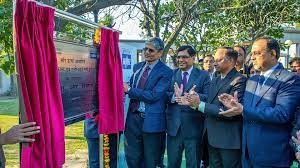
Heavy Industries Minister Mahendra Nath Pandey recently inaugurated an electric vehicle (EV) charging station in Karnal, Haryana.
With this, the Delhi-Chandigarh Highway has become the first EV-friendly stretch in the country, with a network of solar-based electric vehicle chargers (SEVCs).
The EV charging station at Karnal lake resort, is strategically located at the midpoint of Delhi-Chandigarh highway, and is equipped to cater to all types of E- cars plying currently in the country.
The establishment of similar EV chargers at regular intervals of 25-30 kms on the highway will allay range-anxiety among Electric Vehicle users and bolster their confidence for inter-city travel.
Rajnath Singh launched Defence India Startup Challenge 5.0
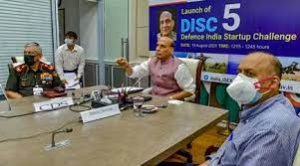
Union Defence Minister Rajnath Singh launched Defence India Startup Challenge (DISC) 5.0 under Innovations for Defence Excellence – Defence Innovation Organisation (iDEX-DIO).
Thirty five Problem Statements – 13 from the Services and 22 from Defence Public Sector Undertakings (DPSUs) – were unveiled under DISC 5.0.
These are in areas such as Situational awareness, Augmented Reality, Artificial Intelligence, Aircraft-trainer, Non-lethal devices, 5G network, Under-water domain awareness, Drone SWARMS and Data Capturing.
iDEX will support five times more start-ups over the next five years as the aim is to accelerate progress, reduce costs and complete procurement in a time bound manner.
The launch of DISC 5.0 by iDEX-DIO comes three years after the launch of DISC 1.0.
The iDEX initiative was launched by Prime Minister Shri Narendra Modi in April 2018 to achieve self-reliance and foster innovation & technology development in defence and aerospace sectors.